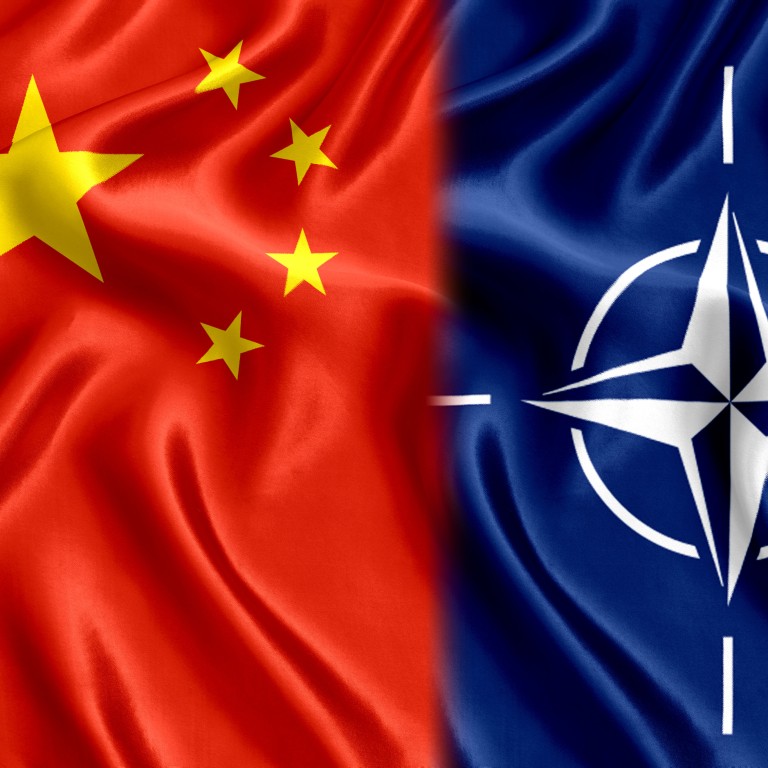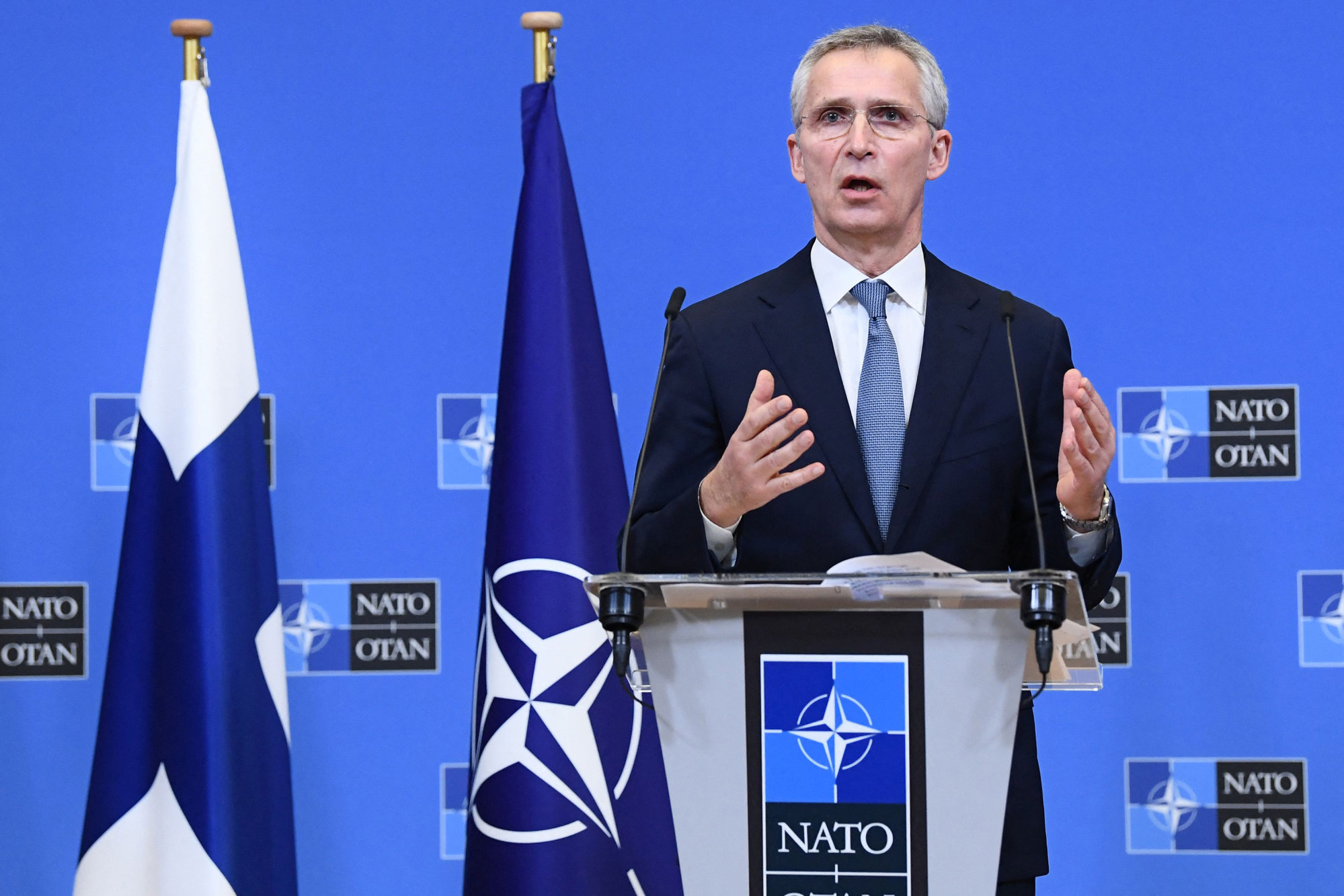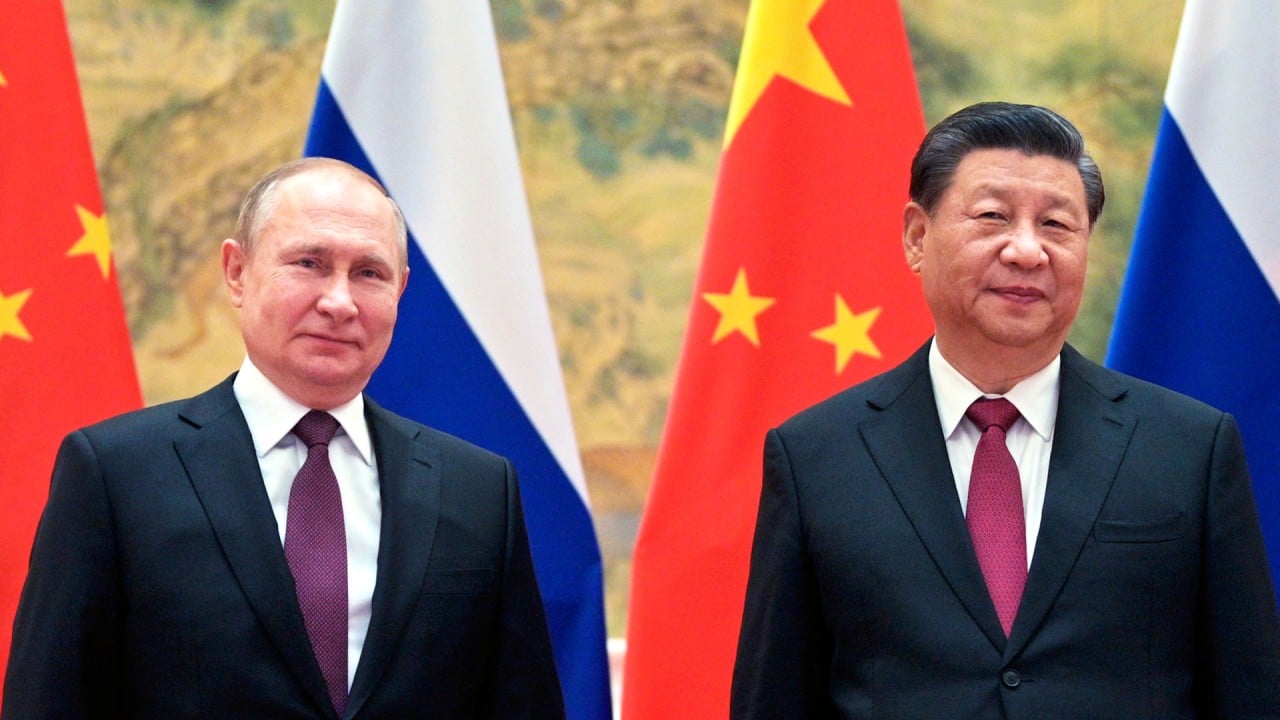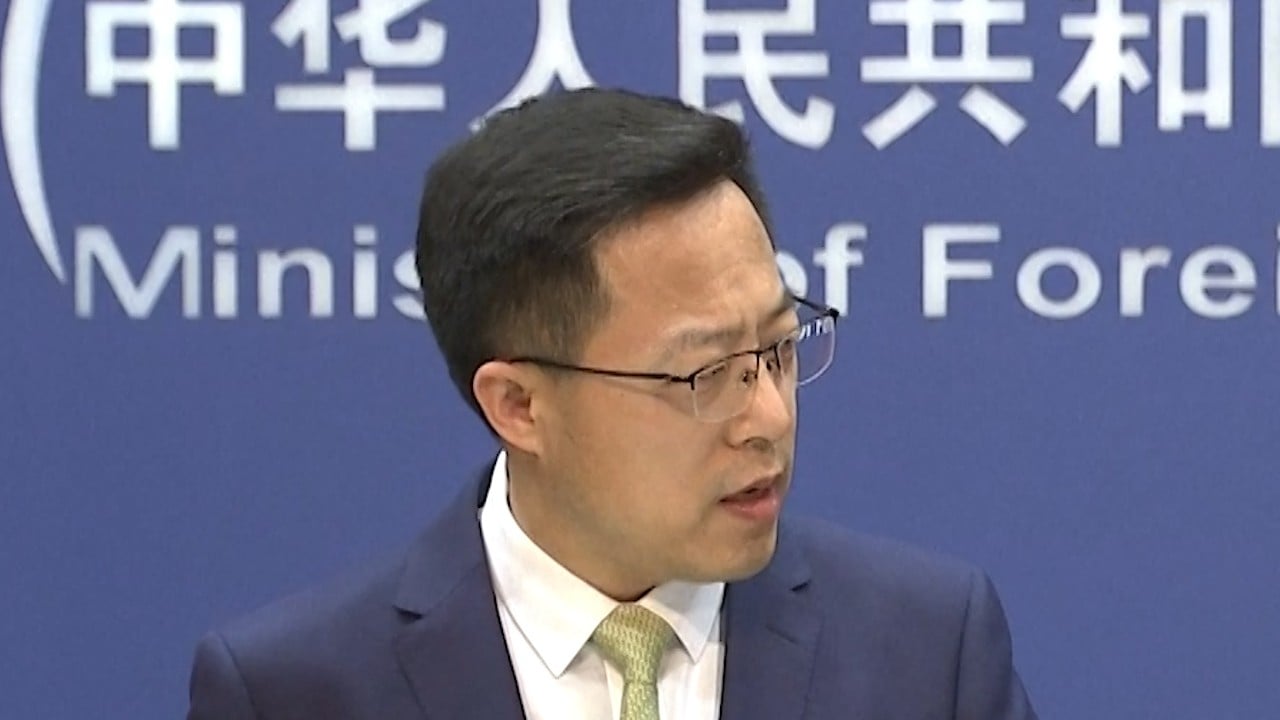
Nato poised to harden position on China as support for Russia deepens distrust
- China is openly contesting the rules-based international order, Nato chief says in sharp shift in tone
- Summit preceded by survey across member states showing uptick in views of China as a security threat
A recent Nato survey across all member states found China was viewed as a security threat by 52 per cent of respondents, an increase of 11 percentage points from 2021.
“China is openly contesting the rules-based international order,” Nato chief Jens Stoltenberg told an event organised by media firm Politico in Brussels this week, in a sharp departure from his tone a year ago.
Chinese investments in new modern military equipment and desire to control critical infrastructure in Europe had made it all the more important for Nato to develop a stronger stance, the secretary general said.
Don’t be ‘fooled by lies and rumours’, China tells Nato
Other Nato members last year had also taken a more moderate approach, brushing off the need to focus on China.
“Nato is an organisation that concerns the North Atlantic, China has little to do with the North Atlantic,” French President Emmanuel Macron had said after the summit.
“So, it’s very important that we don’t scatter ourselves and that we don’t bias our relationship with China.”

Those views have been echoed this year by diplomats from Lithuania and Portugal, who are still apprehensive about focusing on China – since Nato does not share any immediate borders with the country, unlike with Russia.
“China is not an adversary to Nato and should not be regarded as one,” China’s European affairs chief, Wang Lutong, asserted ahead of the summit.
“China poses no challenge … and has brought economic opportunities to the world, including Nato members,” Wang tweeted on Friday.
Ramon Pacheco Pardo, professor of international relations and regional envoy for East and Southeast Asia at King’s College London, said China’s failure to condemn Russia was the main threat to Nato nations.
“I think there is also a perception that China will support Russia if necessary when it comes to the cyber domain, and it will also support Russia in arms transfers,” noted Pardo. “So Nato members feel threatened.”
The expanding influence of China and the need to address the security challenges posed by it was first recognised by Nato in a declaration following its 2019 London summit.
European Nato members will develop a more realistic approach towards China than they did a year or two ago, forecast Jim Townsend, former US deputy assistant defence secretary for Europe and Nato under president Barack Obama.
“But what Nato will do as an alliance and what the nations do individually with respect to China and the Indo-Pacific, is yet to be determined and could be discussed at the summit,” Townsend pointed out.
Twenty-one of the 30 Nato countries are also members of the 27-nation EU.
Besides China, discussions about Asia-Pacific security will also feature at the summit, with Australia, Japan, New Zealand and South Korea attending as “partner” nations.
South Korea, in particular, “is keen to use this summit to discuss North Korea’s nuclear programme,” national security adviser Kim Sung-han said earlier this month.
“That matters for South Korea,” said Pardo at King’s College, “because it can show that there are other countries in Europe and the US that also see North Korea as a threat.”
“This can lead to practical cooperation, especially on cyber [security] and information sharing, between Nato and the Asia-Pacific.”
Townsend believes the presence of the four partner nations will mainly help Nato support the Asia-Pacific region better.
“These nations have got concerns and Nato wants to be aware of those concerns. So I think you will see Nato this time talk about China and other threats in this part of the world with these nations, which will ultimately benefit global security,” he said.




